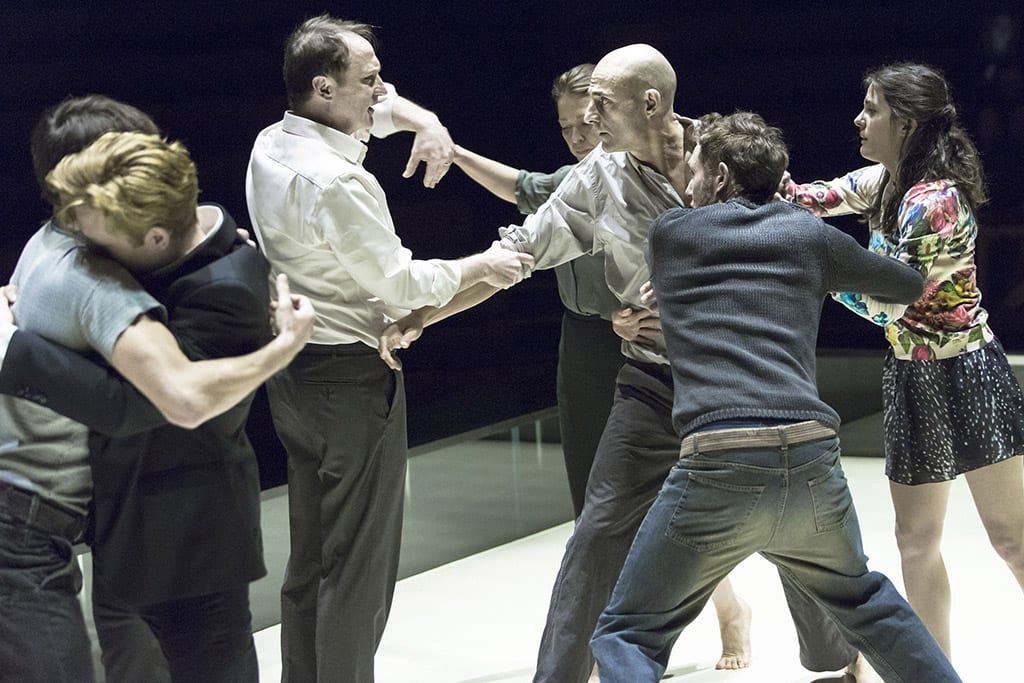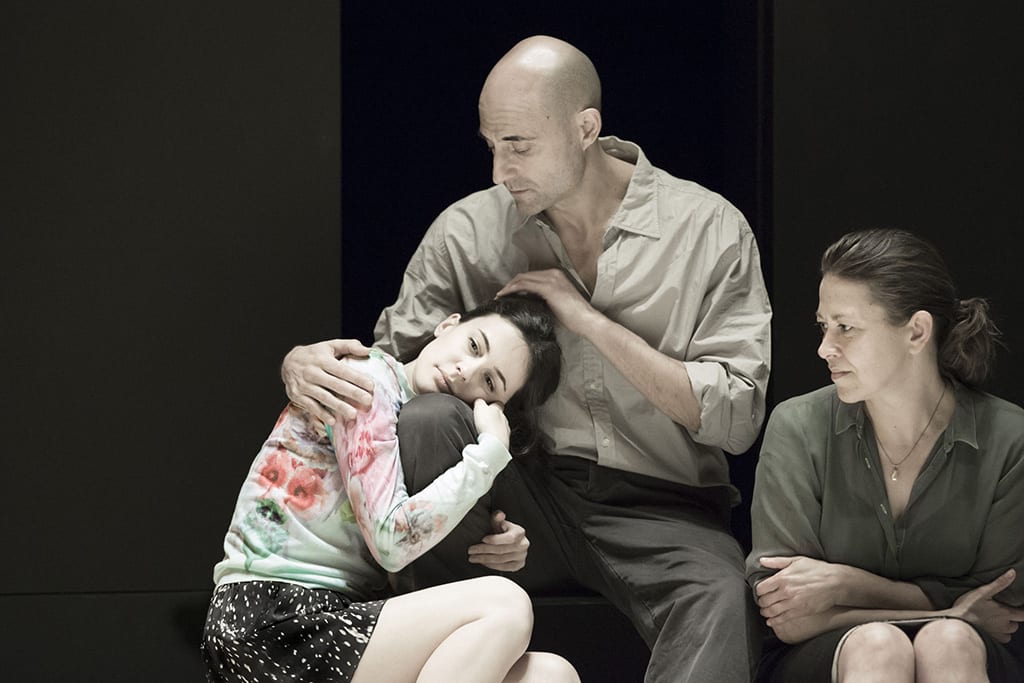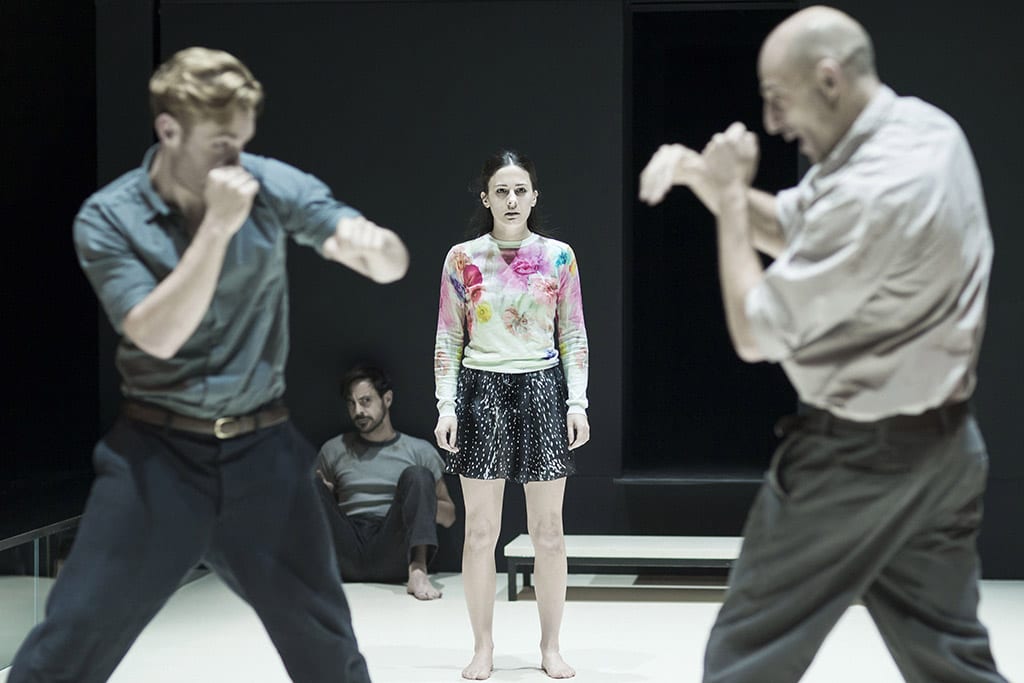Stripped down to a brightly lit box, no furniture except for a single wooden chair, the social realism of Arthur Miller’s tragedy becomes intensely powerful. Ivo Van Hove has directed a masterpiece, breaking away from traditional performances of the well-known play and exposing the tragic inevitability of Eddie Carbone’s actions. The two hours of performance escalate in tension, the destructive forces building until Alfieri’s story ends in a terrifying shower of blood. A visually striking ending contrasts violently with the sparseness of the rest of the play and the audience leaves with the moving image of Eddie tragically reconciled with his long-suffering wife, Beatrice.
Mark Strong as Eddie Carbone brilliantly conveys the paradox behind Miller’s tragic hero: we never know whether to love him or hate him, his strength coupled with his severe insecurity both endearing him to us and isolating him from us throughout the play. His physical presence, his need to control the space, and his openness in allowing himself to ‘be wholly known’ while he should perhaps ‘have settled for half’ is performed wonderfully by Strong. Phoebe Fox as Catherine is perfectly cast next to the imposing Mark Strong. Fox’s youthful, innocently flirtatious energy as she struggles to work out her feelings for both Eddie and the Italian illegal immigrant, Rodolpho, is expertly contrasted to the more mature and rather jaded Beatrice. Nicola Walker’s Beatrice is a kind, thoughtful, and diplomatic woman who desperately wants everything to go back to the way it had always been. Ivo Van Hove’s direction puts emphasis on the failing relationship between husband and wife and it is hard to miss his interpretation of the cause: Catherine and Eddie spend the first half of the play touching and holding each other, Catherine sitting on him, jumping up on him, Eddie stroking her hair… while Beatrice sits next to them but very much untouched and ignored. This is a play about relationships and the destructive energy that they can create if the necessary boundaries are ignored in favour of emotion.
The set, designed by Jan Versweyveld (Van Hove’s off-stage as well as professional partner), is a white platform, enclosed by a raised black seating area. The lawyer Alfieri’s constant presence round the edge of the action confirms his role as the classical chorus, commenting on the action as well as providing the link between the audience and stage. Lighting is used skilfully to reflect the characters’ thoughts – Beatrice sits in darkness, face away from the majority of the audience, when attempting to bring Eddie back to her and ask him why he hasn’t slept with her for three months. Similarly the sound choices work on our tension levels; at well-chosen moments the regular beat punctuates the conversations, exposing the building conflicts between characters. Creative choices for the start and end of the performance reflect the tragic downfall of the characters and the corruption that will ensue – the purifying shower water on the dockyard will turn into thick blood by the end of the play.
A View from the Bridge, a play about destructive relationships, power, dependence, immigration, community, and loyalty, will remain relevant and exciting for a long time yet. And it is directors such as Ivo Van Hove that keep works such as this alive through innovative, creative, and brilliantly produced new versions.



